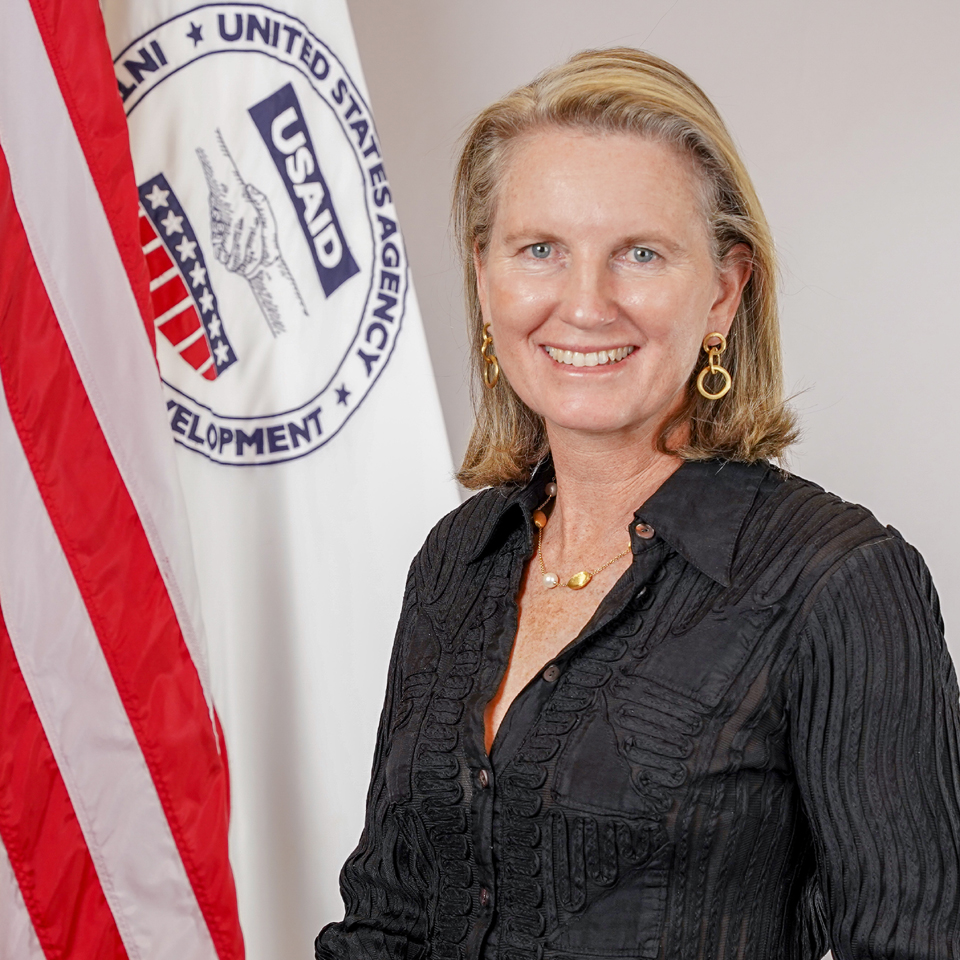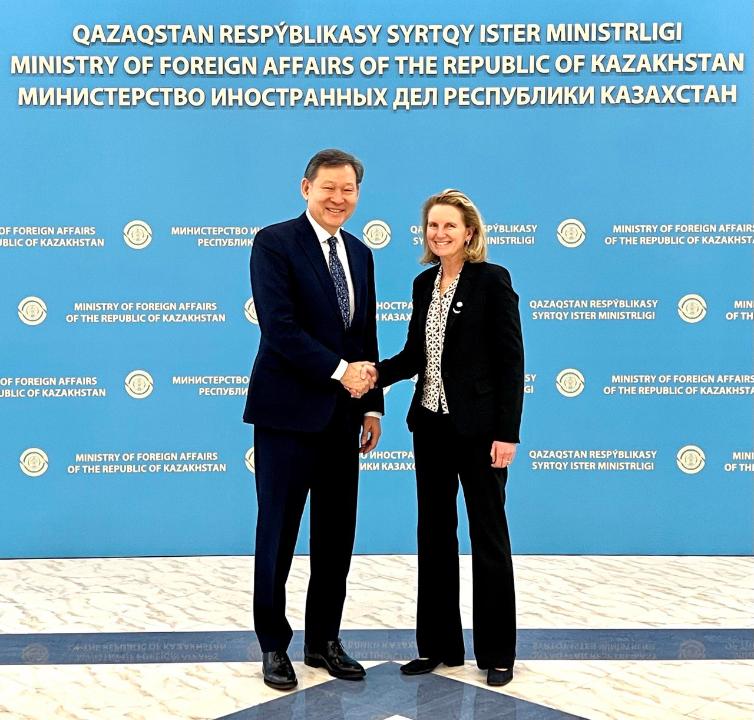ASTANA – Deputy Administrator for Policy and Programming at the United States Agency for International Development (USAID) Isobel Coleman emphasized the United States’ commitment to each of the Central Asian states’ sovereignty, territorial integrity, and independence during her working trip to the region on Feb. 12-18, reported the USAID press service.

Isobel Coleman. Photo credit: Wikipedia.
Coleman began her trip on Feb. 12 in Astana with a visit to the ALZHIR museum and memorial complex of political repression and totalitarianism victims. She paid tribute to victims of Stalin’s mass repression and highlighted U.S. support for Kazakhstan’s resilience, identity, and sovereignty.
“I want to underscore the importance of the bilateral relationship. This is a partnership that we care deeply about. Kazakhstan is an important country… and we have a long partnership, and I am looking forward to deepening that partnership and hearing directly from them about their priorities and the ways that we can continue to work on helping to realize the reform agenda that President [Kassym-Jomart] Tokayev has announced and really help on the full implementation of that agenda,” Coleman said in an interview with Khabar 24 TV channel.
Coleman met with Kazakh government officials to discuss strengthening regional cooperation amidst the current geopolitical situation.
In Almaty, home to USAID’s Regional Mission to Central Asia, Coleman met on Feb. 14 with entrepreneurs, civil society groups, and youth leaders to discuss barriers to expanding inclusive economic opportunities and protecting human rights and fundamental freedoms.

Isobel Coleman with Kazakhstan’s First Deputy Minister of Foreign Affairs Kairat Umarov. Photo credit: Foreign Ministry’s press service.
She announced 15 grants for journalists and independent content producers in Kazakhstan, Tajikistan, and Uzbekistan through USAID’s Central Asia Media Program, aimed at increasing media and information literacy among youth and adults, according to the report.
During her visits to Kazakhstan, Kyrgyzstan, and Tajikistan, Coleman emphasized USAID’s partnership with the people of Central Asia to strengthen regional connectivity, economic diversification, food security, clean energy, digital integration, vibrant civil societies, and good governance.
“She affirmed USAID’s enduring support for health, education, governance reform, inclusive economic growth, and nutrition needs across the region to help communities build resilience and prosperity. She also highlighted USAID activities supporting the United States and Central Asia’s shared objectives across all three pillars of C5+1 diplomatic engagement – economy, energy and environment, and security,” the report reads.
In Bishkek, Coleman met with members of the media, civil society groups, and women community leaders to hear about the challenges they face in participating in society and in upholding democratic institutions. Coleman also met with government officials to discuss ways to bolster Kyrgyzstan’s response to infectious diseases, strengthen trade through economic diversification, boost household incomes, and build the country’s resilience to climate change. During meetings with officials, Coleman announced $4 million in assistance, subject to the availability of funds, to strengthen the country’s capacity to detect, prevent and treat emerging infectious diseases threats and $2 million to support women entrepreneurs.
She also met with Kyrgyz entrepreneurs and agribusiness owners. Coleman toured a fish processing facility and a woman-owned apparel factory that dramatically expanded production with USAID assistance and created new jobs and economic opportunities, particularly for women. Afterwards, she visited one of the 1,600 USAID-supported public primary schools nationwide, successfully increasing student and teacher access to electronic learning materials and applications to improve learning. She then met climate experts to discuss renewable energy opportunities.
In Dushanbe, Coleman met with government officials to discuss such priorities as environmental protection, food security, health, inclusive economic growth, and education. She underscored USAID’s commitment to supporting agricultural productivity and strengthening food security in Tajikistan, including through two new grants totaling $13 million. Then, she visited the USAID-supported Hisor School to hand off more than 2,000 new large font books to help ensure children who are blind, low vision, or partially sighted have the specialized educational materials they need to succeed.

